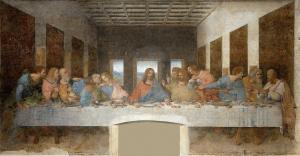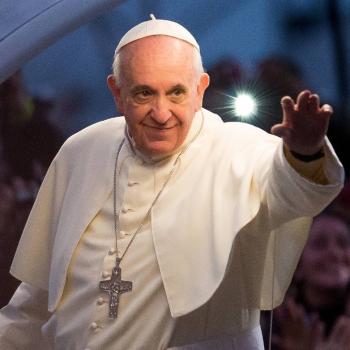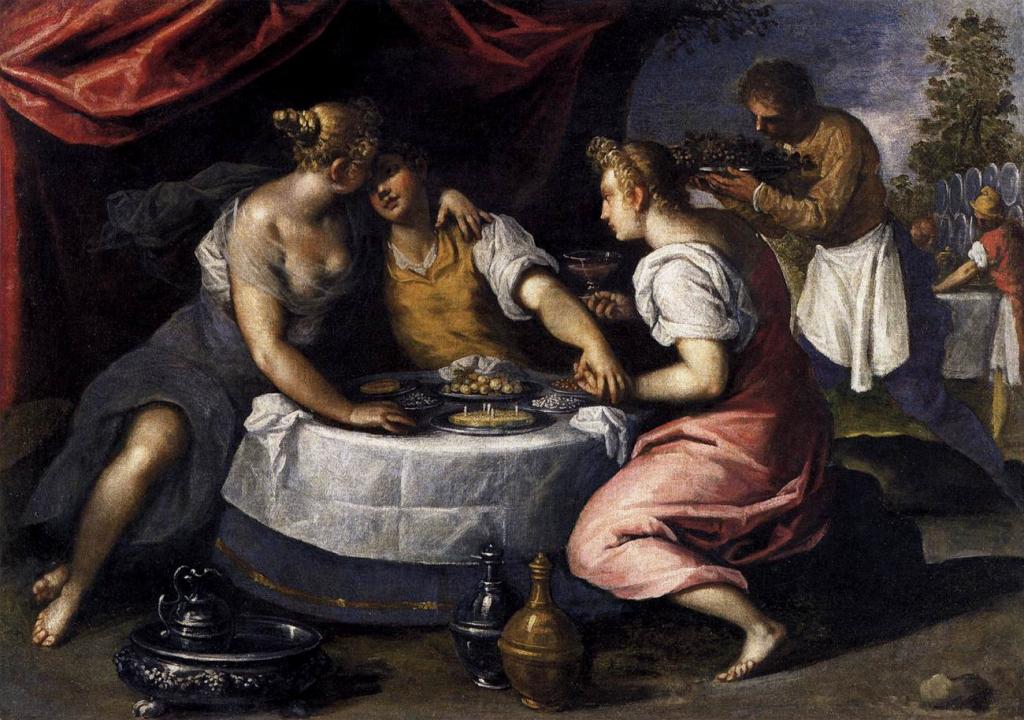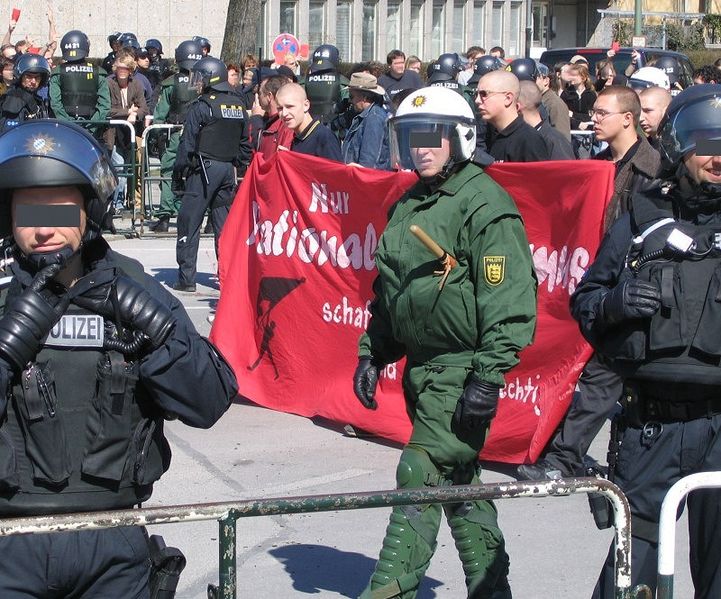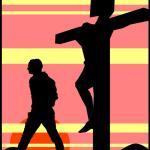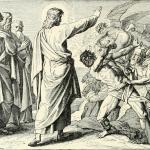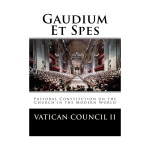By now everyone has read about the controversial Olympic Opening Ceremony scene last week, so I’m not going to provide the full details here, but I nonetheless Have Thoughts About It.
- Yes, it was definitely a reference to the Last Supper, though it was a dynamic scene rather than a still image, so that it shifted from “Last Supper” to “Greek Gods” to “catwalk.” But participants in the scene perceived of what they were doing as exactly this, with the central actress posting to Instagram that the scene was the “new gay testament” and the performance was titled ” ‘La Cène Sur Un Scène Sur La Seine,” where “La Cène” is literally French for “The Last Supper.”
- Yes, there are other instances in which the Last Supper has been parodied, though those parodies are either light-hearted or mock the characters in the parody (that is, when it’s fictional characters), not the apostles/Jesus. In this instance, the message was different, that the “queer community” was replacing the Christian community. Was this the sole message of the ceremony, a poke in the eye of the collective Christian community? No. But it’s still there.
- It feels unfair that secularists are happy to mock Christians but keep quiet about Muslims to avoid their wrath. It’s hypocrisy, no doubt. But what is a Christian to do about it? In any case, there is a case to be made that the French are more even-handed, and have paid the price, what with the Charlie Hebdo magazine and the Bataclan terrorist attack in 2015.
- The bigger issue is that countries/cities have used the Olympic Opening Ceremony as a way of presenting to the world what is best about their culture, showcasing what it is that they take pride in, and what they think will cause the audience to think more highly of the host country/city. For example, as this article at PBS recites, Japan used its 1964 ceremony to tell a story of a “new peaceful Japan,” Moscow highlighted folk dance in 1980 and LA highlighted popular music and Hollywood in 1984, Sydney in 2000 told a story of multiculturalism and honoring their indigenous community, Bejing jaw-dropping performances (who can forget the 2,008 drummers?) proclaimed their World Power status, London in 2012 left us scratching our heads with the tribute to the NHS but we assumed it was special to the Brits and who can forget the dramatic James Bond/Queen Elizabeth II entrance celebrating two things that are uniquely British? What does this portion of the Opening Ceremony say about French culture? I can’t say whether everyone involved in this production had simply abandoned that ideal of “showcasing of the culture,” or whether they truly thought this was something that would cause the world to be impressed, but it’s sad that this tradition has been seemingly abandoned.
- In the end, how to craft an Opening Ceremony is a decision made by the French, and in this case, the Paris organizers’ PR is that virtually all French people approved of the ceremony. (Yes, this was a poll they commissioned, and, no, I cannot find a link to the poll, just to reporting about it.) It seems unlikely that the majority of the French were truly as happy as the PR claims, given the significant divide in the country between hard-left and hard-right, and I suspect this hardens battle lines, but this is the least of their concerns.
- But that’s not the end of the story. The “drag Last Supper” is most charitably explained as originating in performers who simply don’t consider Christianity to be a living faith; it is as dead (and thus as ripe a subject for recreation) as the Greek gods. The numbers of Westerners — French, Americans, etc. — who not only don’t believe in Christianity but are so totally removed from the world of believers that religious people might as well not exist in their mind, who see religion as a thing of the past, is growing steadily, and that will unquestionably have consequences.
